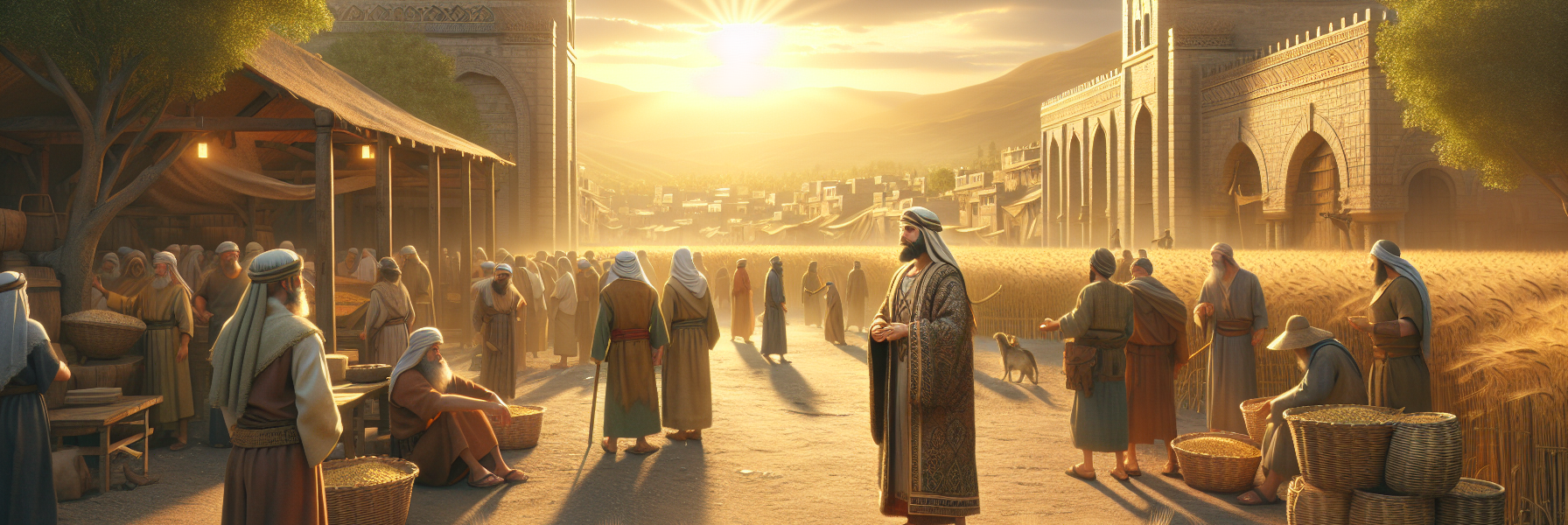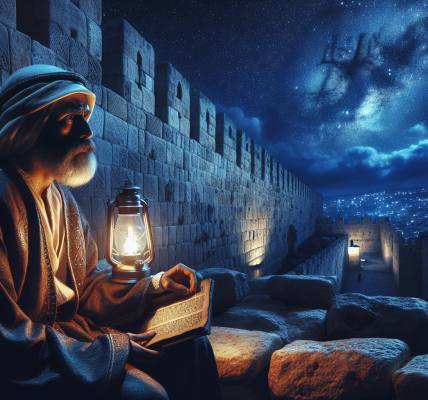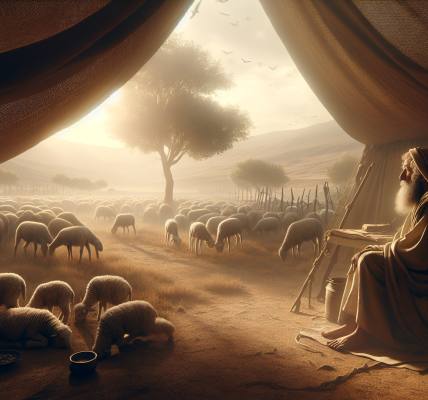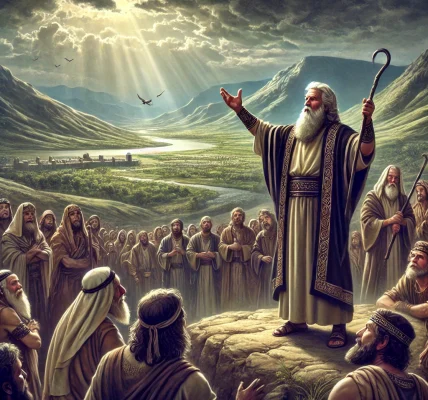**The Redemption of Ruth**
The sun hung low over Bethlehem, casting golden rays across the barley fields that had once sustained Naomi’s family. The town gate, the bustling center of legal and social affairs, was alive with activity as merchants traded, elders deliberated, and laborers rested in the shade. Among them was Boaz, a man of standing and integrity, who had resolved this day to settle the matter of Ruth’s future—and Naomi’s redemption.
Clad in a finely woven tunic, Boaz strode confidently toward the gate, his sandals kicking up small clouds of dust. He had not come alone; Ruth’s story had stirred his heart, and he was determined to act as the kinsman-redeemer if the law permitted. As he reached the assembly, he spotted the closer relative—the man who held the first right of redemption. Boaz hailed him, his voice steady yet urgent.
**”Come over here, my friend,”** Boaz called, beckoning him to sit among the elders. The man, curious but unsuspecting, obliged. Around them, the hum of conversation quieted as others sensed the gravity of the moment. Boaz wasted no time.
**”Naomi, who has returned from Moab, is selling the piece of land that belonged to our brother Elimelech,”** he declared. **”I thought I should bring it to your attention and suggest that you buy it in the presence of these witnesses.”** He gestured to the elders seated nearby, their faces lined with wisdom and years of judgment.
The man’s eyes flickered with interest. Land was valuable, a lasting inheritance. **”I will redeem it,”** he said without hesitation.
But Boaz was not finished. He leaned forward slightly, his voice measured. **”On the day you buy the land from Naomi, you also acquire Ruth the Moabitess, the widow of the dead, to maintain the name of the deceased with his property.”**
The man’s expression shifted. His initial eagerness faltered as the weight of the obligation settled upon him. To take Ruth as his wife meant more than just acquiring land—it meant raising up heirs for another man’s lineage, dividing his own inheritance. He rubbed his beard, calculating the cost.
After a tense silence, he shook his head. **”Then I cannot redeem it,”** he admitted, his voice edged with regret. **”I might endanger my own estate. You redeem it yourself; I cannot do it.”**
To seal his refusal, the man followed the ancient custom. He slipped off his sandal and handed it to Boaz—a tangible sign that he relinquished his claim. The elders and onlookers murmured in acknowledgment. The matter was settled.
Boaz stood tall, his heart swelling with purpose. He turned to the assembly, his voice ringing with authority. **”Today you are witnesses that I have bought from Naomi all the property of Elimelech, Kilion, and Mahlon. And I have also acquired Ruth the Moabitess, Mahlon’s widow, as my wife, to preserve the name of the dead in his inheritance, so that his name will not disappear from among his family or from his hometown.”**
The elders, their faces solemn yet approving, responded in unison. **”We are witnesses,”** they declared. Then, their voices softened into blessing. **”May the Lord make the woman entering your home like Rachel and Leah, who together built up the house of Israel. May you have standing in Ephrathah and be famous in Bethlehem. Through the offspring the Lord gives you by this young woman, may your family be like that of Perez, whom Tamar bore to Judah.”**
Boaz bowed his head in gratitude. The Lord’s hand was evident in this moment—what had begun in sorrow and loss was now unfolding in redemption and hope.
In time, Ruth bore a son named Obed. The women of Bethlehem rejoiced with Naomi, declaring, **”Praise be to the Lord, who has not left you without a kinsman-redeemer today! May he become famous throughout Israel! He will renew your life and sustain you in your old age, for your daughter-in-law, who loves you and is better to you than seven sons, has given him birth.”**
Naomi cradled the child in her arms, her heart full. The bitterness of her past had been replaced with sweetness, for the Lord had turned her mourning into joy. And in the years to come, this child would be the grandfather of David, the shepherd-king—a link in the lineage of the promised Messiah.
Thus, through faithfulness, kindness, and divine providence, the story of Ruth and Boaz became a testament to God’s redeeming love—a love that reaches beyond borders, restores what was broken, and weaves even the humblest lives into His eternal plan.




